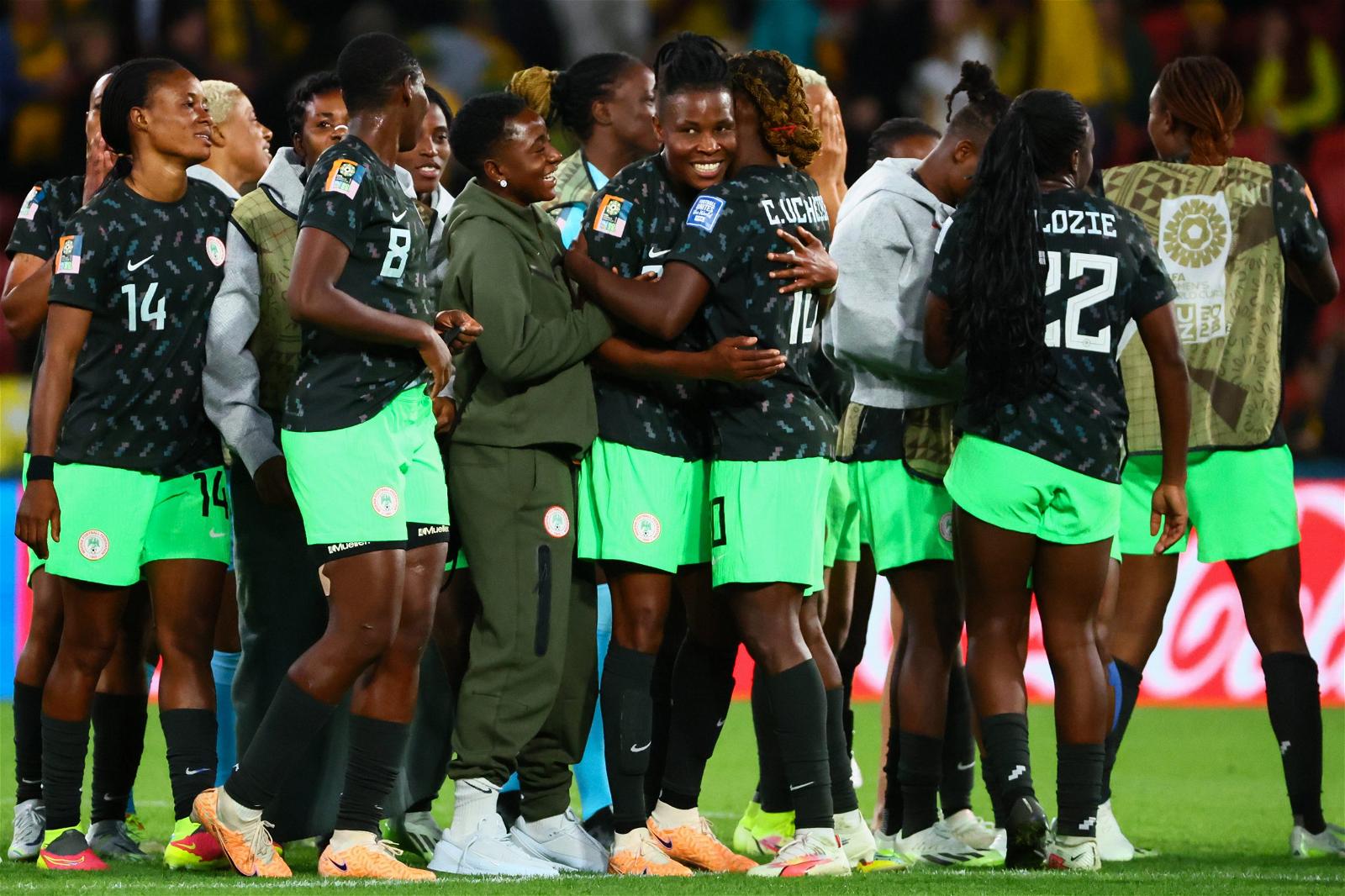Nigeria’s Super Falcons have maintained their 36th position in the FIFA Women’s World Rankings, cementing their status as Africa’s top-ranked team despite a mixed run of recent international results. The latest rankings, released by FIFA on Thursday, reflect the team’s consistent performance on the continental stage, even as global powerhouses jockey for position at the summit of women’s football.
During the review period, the nine-time African champions demonstrated their prowess with convincing victories over Algeria’s Green Ladies, securing 2-0 and 4-1 wins in a two-legged friendly series. However, a narrow 2-1 defeat to France’s Les Bleues showed there remains work to be done for the West African giants to challenge the world’s elite teams consistently.
Under the guidance of coach Justine Madugu, the Super Falcons continue to dominate African football, leading a strong contingent of continental powerhouses. South Africa’s Banyana Banyana, the current African champions, hold their position as the second-ranked team in Africa, while Morocco’s rapid rise in women’s football sees them complete the continent’s top three. Zambia and Ghana round out Africa’s top five, highlighting the growing competitiveness of women’s football across the continent.
At the global level, significant movements among the world’s elite have reshaped the upper echelons of the rankings. While the United States maintains its grip on the top spot, World Cup champions Spain have ascended to second place, reflecting their continued excellence following their triumph in the global showpiece. Germany has climbed to third position, while England, despite their recent successes, have slipped to fourth in the latest calculations.
The Super Falcons’ ability to maintain their position speaks to the team’s resilience and consistent performance level, particularly considering the increasing investment and rapid development of women’s football globally. The Nigerian team’s ranking reflects their status as a continental powerhouse, having dominated African women’s football for decades with their record nine African Women’s Cup of Nations titles.

Looking ahead, the next FIFA Women’s ranking update, scheduled for March 15, 2024, will provide another crucial benchmark for measuring the progress of women’s football both in Africa and globally. This upcoming period will be particularly significant as teams continue their preparations for various international competitions and Olympic qualifiers.
The current rankings also underscore the evolving landscape of women’s football, where traditional powerhouses face increasing competition from emerging forces. Spain’s rise to second place following their World Cup victory exemplifies how success in major tournaments can significantly impact a team’s global standing, while also highlighting the increasing competitiveness at the highest level of the women’s game.
For the Super Falcons, maintaining their position at the summit of African football while competing against increasingly well-resourced rivals represents both a challenge and an opportunity. Their recent results, including the competitive showing against France, demonstrate their potential to compete with the world’s best, while also highlighting areas for continued development.
The stability in Nigeria’s ranking provides a solid foundation for future growth, but the team’s technical staff will be aware that maintaining this position requires continued innovation and development, particularly as other African nations invest more heavily in their women’s football programs.
As women’s football continues to grow in popularity and professionalism worldwide, these rankings serve as more than just numbers – they represent benchmarks for measuring progress and identifying areas for improvement. For the Super Falcons, the challenge now lies in building on their continental dominance to make further inroads into the global elite, while maintaining their position as Africa’s leading force in women’s football.
The next ranking release in March 2024 will provide another opportunity to assess the team’s progress, as they continue their quest to bridge the gap between continental supremacy and global excellence in women’s football.



